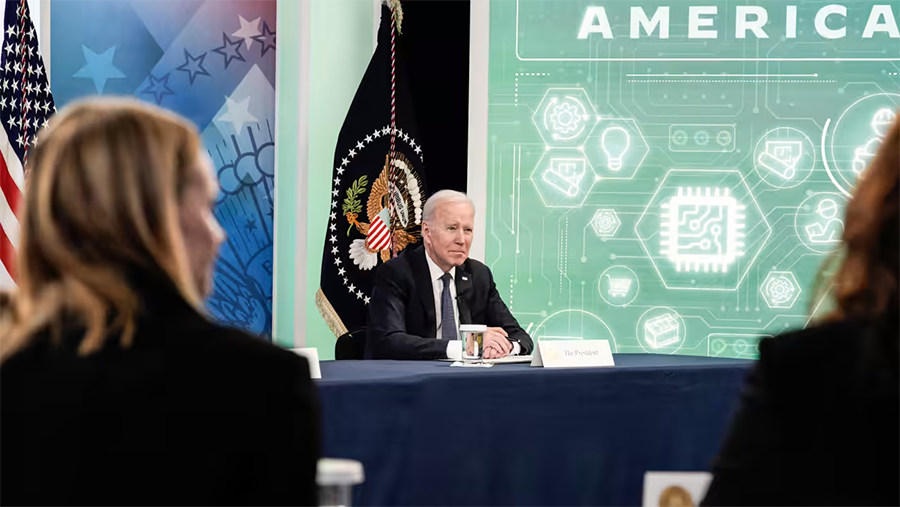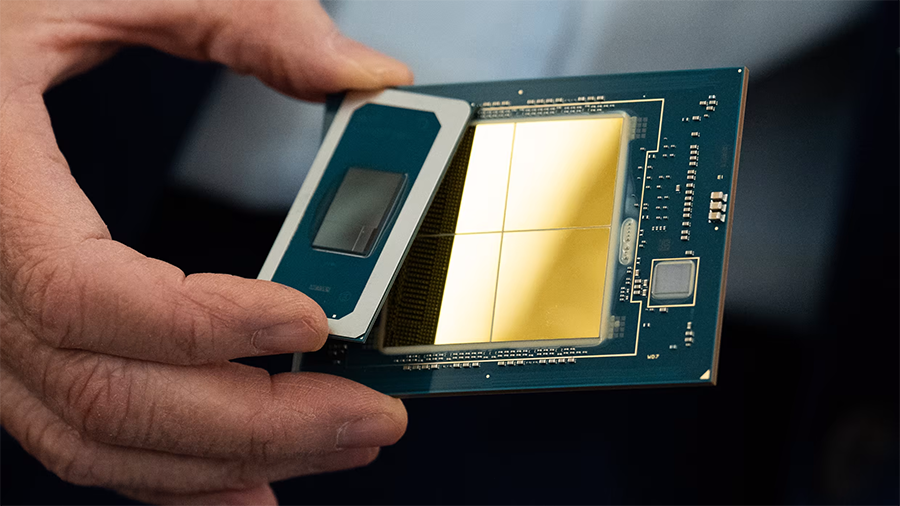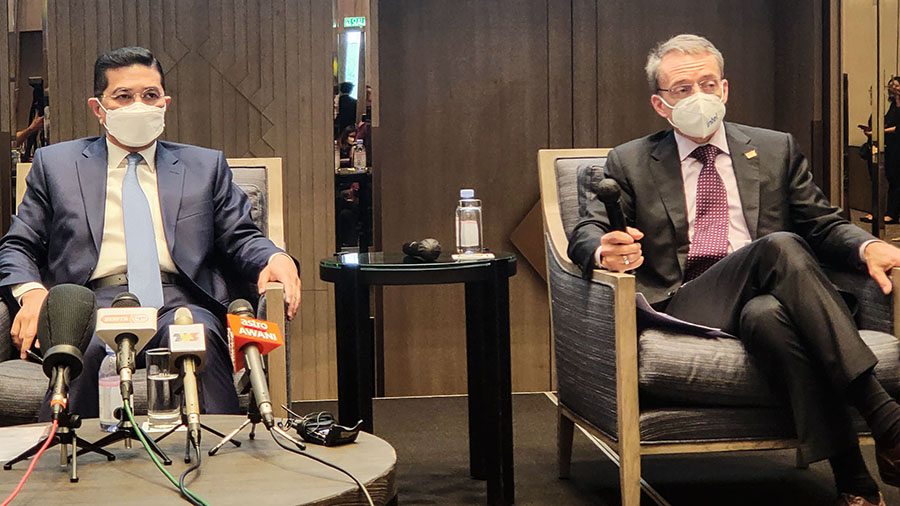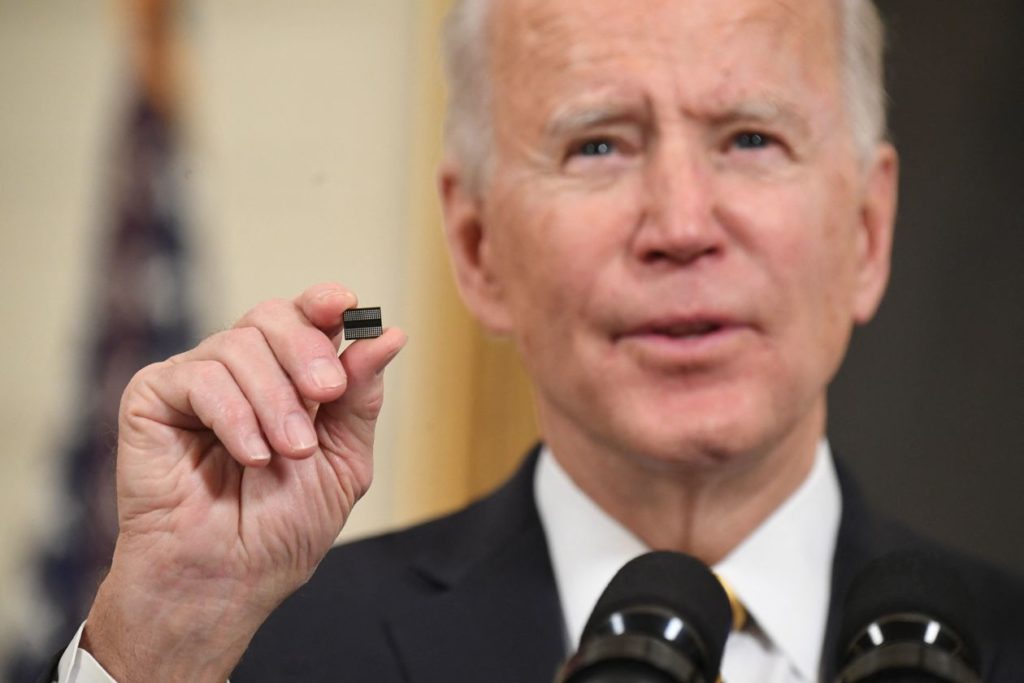
Major American and Asian chip makers warned this week that they may scale back their planned investments in building U.S. semiconductor production if Congress doesn’t finally move forward and pass the CHIPS Act. The CHIPS Act is legislation the administration seeks to build up a more robust U.S.-based semiconductor supply chain.
Learn more on chip makers pulling back on U.S. fab projects
During the depths of the COVID-impacted supply chain issues, the Biden administration set its target on expanding chip production in the U.S. Aggressively reaching out to a wide variety of chip makers both here and abroad, the administration was successful in convincing several top companies, such as Intel, Taiwan Semiconductor Manufacturing Company (TSMC), and Samsung to commit to major, several billion dollar projects based in the U.S.
In order to incentivize their commitment, the $52 billion CHIPS Act was created to provide tax breaks and other incentives to chip manufacturers to secure their cooperation. Most of the projects chip makers have committed to in the U.S. rely on this act being passed.
Intel Postpones Large Ohio Plant Groundbreaking Until CHIPS Act Sorted Out
So are chip makers serious…or just complaining? Intel has already said that because Congress has so far failed to pass the CHIPS Act, it has decided to “indefinitely postpone breaking ground” on a large $20 billion chip fabrication facility in Ohio, according to a report in the Nikkei. Originally, there was to be a July 22nd groundbreaking ceremony.
The world’s third-largest contract chip maker, GlobalFoundaries, has said that events surrounding the CHIPS Act will dictate the pace at which they will expand their manufacturing capacity in the U.S. The company currently has plans to invest $1 billion in a fab in upstate New York.

Asian Chip Makers Say Subsidies are Needed as U.S. is More Expensive
TSMC has already commenced on a $12 billion project in Arizona, but like the other chip makers says its speed of construction depends on the delivery of promised U.S. subsidies. A business minister in Taiwan says the company began the project trusting that the promised subsidies will happen.
The Asian chip makers say that for them, the promised subsidies are really important as it costs substantially more to build and operate a plant in the U.S. than in other parts of the world. At their annual shareholders meeting last month, TSMC’s chairman called on Washington to extend the planned support for the chip industry.
GlobalWafers, also out of Taiwan, is the world’s third-largest producer of silicon wafers used in the production of semiconductors. At the end of June, they announced their plans to build a $5 billion wafer plant in Texas. However, the company’s CEO is clear that U.S. government incentives will be critical for them to move forward on the project.

So What’s the Deal with the CHIPS Act?
So just what is the deal with the CHIPS Act? The Creating Helpful Incentives to Produce Semiconductors for Amerca Act – the CHIPS Act – was introduced in the middle of 2020 “in the midst of an unprecedented global semiconductor supply crunch,” as the Nikkei put it. It had the support of both Democrats and Republicans, which is quite rare in today’s world. It also had the support of the companies eyeing new projects in the U.S.
The act will support the creation of hundreds of thousands of jobs and spur further private investment into the sector.
The CHIPS Act does have strong bipartisan support as well as the backing of state and local leaders, business leaders, national security experts and two-thirds of American voters. It would commence a renaissance in American research, design and manufacturing the chips that power the modern world.
John Neuffer, CEO of Semiconductor Industry Association, a U.S. trade group

What’s the Hold-Up? What Else…Politics and Money!
So if the CHIPS Act offers all of these great things, what’s holding it up? In short – politics and money.
First passed by the House of Representatives in mid-2020, there was an issue coming up with the total amount of funding necessary. Then the Senate passed a different version of the law as part of another bill designed to boost American competitiveness. Then House Democrats came up with their own version of the competitiveness bill, which is different from the Senate’s bill.
So politicians from both parties, and from both sides of Congress, are working to reconcile all of these differences. All of which is further complicated by other politics, thanks to the many competing priorities of the day.
Supporters of the CHIPS Act hope to have a final bill ironed out in July. As the Nikkei notes, if the bill is not completed by the August recess of Congress, then it may be permanently stalled as after that break we head into the mid-term elections – a further complication.





The CHiPS Act? Who are they going to hire as the lobbiests? Eric Estrada and Larry Wilcox?
In short, they are refusing to do anything until they get even MORE handouts.